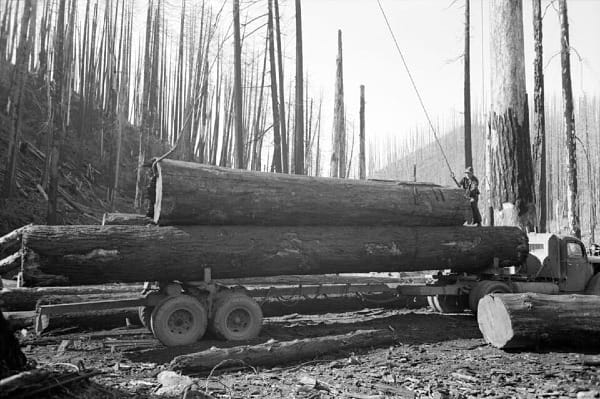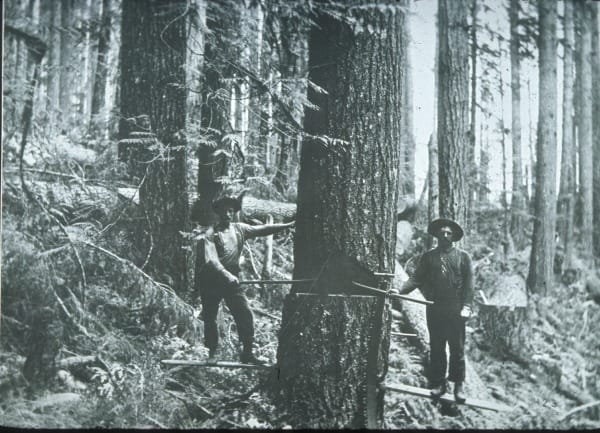Developing Empathy and Wide Perspectives
Historian Brenden Rensink nurtures interdisciplinarity

Introduction
Brenden Rensink and I share strong interests in the history of the North American West, but even more than that, we are both partisans of Northwest Washington where we grew up. This has been a foundation of our professional friendship.
Brenden is the Associate Director of the Charles Redd Center for Western Studies at Brigham Young University and a professor in the Department of History there, as well as the host of the Writing Westward Podcast. He manages an ever-growing digital history project, Intermountain Histories, which may have been where we first connected. Over the years, every time we connect, we discover more we hold in common. Close readers of Taking Bearings will notice these connections.
Brenden's work has always focused on the North American West, centering on borderlands and Indigenous peoples. His monograph, Native but Foreign: Indigenous Immigrants and Refugees in the North American Borderlands (2018), earned the prestigious Spur Award for Best Historical Nonfiction Book from the Western Writers of America. He is also the editor of several volumes, including a recent book that is bound to be cited as a foundational work in 21st-century western studies: The North American West in the Twenty-First Century (2022). This volume resulted from a seminar convened by Brenden at the Redd Center that draws attention to one of his greatest gifts: he's a generous convener and supporter and nurturer not only of scholarship and scholars but also of a wide array of activities that aims to deepen our understanding of how the past informs the present—something at the heart of what I try with Taking Bearings.

Becoming a Historian
Maybe more than most professions, historians can often clearly identify how they first became interested in history. It happened early for Brenden: 8th grade.
In Mr. Baglio's class at Whatcom Middle School. It was a unit on the Holocaust. I don't think I'd ever been disinterested in history, but that was a moment where I thought, "Oh, this matters." Understanding this horrific set of historical events actually matters. There was lots of talk about needing to learn this so we don't repeat it. And I thought, "Maybe I should become a historian."

When he was in middle school, Brenden thought he might teach history in middle school. In high school, he thought, maybe high school. By the time he was in college at Brigham Young University, he realized he did not want to return to a high school classroom. He entered BYU as a history major and never wavered.
Other than two years on a church mission, Brenden sailed straight through his undergraduate education and moved on to University of Nebraska where he specialized in western, Indigenous, and Borderlands history. He hit the job market right after the 2008 collapse.
It was not a great time to go on what was already a horrible job market. I had a full year just adjuncting. Two years as a visiting assistant professor. All through those years, I was applying for hundreds of jobs. But the tenure track job offers just weren't coming. After a couple years as a visiting professor, I took a job with the LDS church in the Church History Department as a documentary editor and historian on their huge multi-volume Joseph Smith Papers Project.

Although he had no specific documentary editing training, Brenden was excited to be doing this fulfilling work. He wasn’t actively applying for academic jobs when a position with the Redd Center opened up. Brenden got the position and got to work.
Being an academic has allowed me to pander to my curiosity. What am I interested in today? I'll work on that. There are very few professions where you can live that life of the mind and study whatever you think is most interesting at the time.
Embracing Interdisciplinary Perspectives
Once Brenden arrived at the Redd Center he started supporting its mission and building projects—the digital Intermountain Histories project, the Writing Westward Podcast, the grants and visiting lecturer programs. And, of course, he engaged with his own research and teaching.
A large portion of my day-to-day work now as a historian is doing things that I have no training for. No training in public history, no training in digital history or interviewing people or administrative work. A lot of what I do here is not focused on my own scholarship but on promoting other people's and giving other people a platform. Then I engage with them on that platform in innovative ways that are informed by my training.
Still, he often wishes he had taken classes in these areas during grad school.


